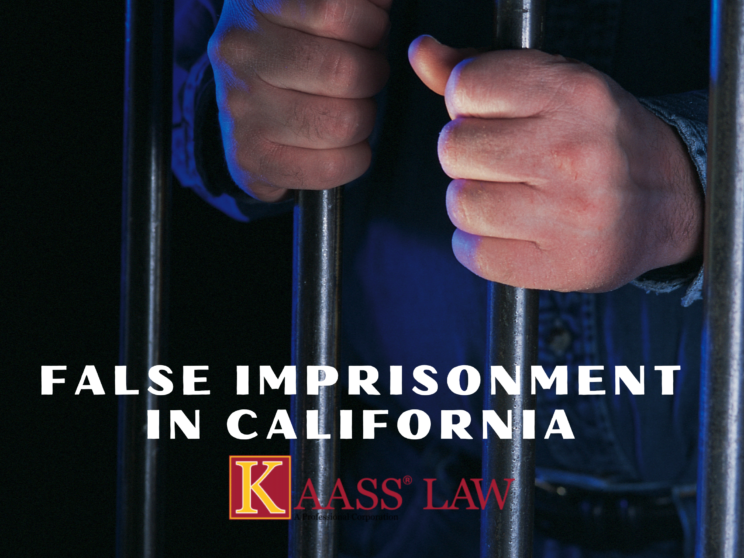False Imprisonment in California: Penal Code 236 (PC 236)
False imprisonment in California is the act of intentionally taking away another person’s freedom without being legally allowed or justified to act so.
This generally refers to situations when people are illegally and wrongfully arrested by police officers for something that they did not deserve to be arrested for. Therefore, if someone is arrested for something that they do not deserve to be arrested for, the arresting police officers have intentionally and illegally taken that persons freedom. In these types of situations, officers can be found liable and/or guilty for false imprisonment.
Elements of False Imprisonment PC 236 in California
According to CACI 1400, the plaintiff must be able to establish the following elements to prove the claim of wrongful imprisonment:
- Defendant intentionally deprived the plaintiff of his freedom of movement by use of physical barriers, force, threats of force, menace, fraud, deceit, unreasonable duress
- The restraint, confinement or detention compelled the plaintiff to stay or go somewhere for some appreciable time, however short
- Plaintiff did not knowingly or voluntarily consent
- Plaintiff was actually harmed
- Defendant’s conduct was a substantial factor in causing harm to the plaintiff
Criminal and Civil False Imprisonment in California
Under California Penal Code Section 236 PC it a crime to falsely imprison another person. But, false imprisonment is also a tort that can give rise to a civil lawsuit.
The definition and elements of the tort of false imprisonment are similar to the crime under PC Section 236. A person guilty of the crime of false imprisonment will face criminal penalties. In a civil suit involving false imprisonment, a person sues another party to recover damages that false imprisonment caused.
When Can Police Officers Arrest a Person?
In California police officers arrest people under the authority of Penal Code Section 836, which provides that a peace officer can make an arrest with or without a warrant when:
- He has reasonable cause to believe that the person to be arrested has committed a public offense in his presence
- The arrested person has committed a felony although not in his presence
- He has reasonable cause to believe that the arrested person has committed a felony, whether or not a felony has in fact been committed.
False Arrest by a Peace Officer With a Warrant
In case a police officer has a warrant to arrest a person, it doesn’t necessarily mean that the officer has the authority to arrest him.
Illegal imprisonment can occur even if a warrant was issued before the arrest. A warrant issued as the result of a fraudulent claim made by a peace officer can lead to an unlawful arrest.
The idea that an arrest warrant can be invalid is significant because it is one of the elements the plaintiff must prove to sue for false imprisonment. At the same time, it is also one of the defenses that a peace officer can possibly use. The other elements are similar to the above-mentioned elements.
False Arrest by a Peace Officer Without a Warrant
An arrest without a warrant is illegal unless the arrested person has in fact committed a crime or the arresting police officer has reasonable cause to think so.
There is no exact rule to determine the reasonable cause and each case must be decided on its own facts.
Imprisonment by a Private Citizen
In California, a private citizen has the right to make another citizen’s arrest. A citizen’s arrest is considered legal in case the private citizen is able to prove that the perpetrator either committed a crime or was about to commit a crime.
An arrest occurs when a citizen either restrains a perpetrator himself until the police arrive, or calls for an officer, leading to the perpetrator’s arrest.
Damages That Can Be Recovered
Here are some possible damages which the plaintiff may recover in a civil false imprisonment case:
- Loss of time
- Physical inconvenience or discomfort
- Physical illness or injury
- Business interruption
- Damage to reputation.
If you or your loved one has been accused of false imprisonment, per California Penal Code Section 236, KAASS Law invites you to reach out to us for a free legal consultation.

